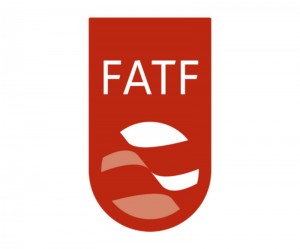
The Financial Action Task Force has kept the Philippines on the “gray” list of countries being monitored for compliance with internationally accepted standards against harboring tax evaders.
A global anti-money laundering watchdog has kept the Philippines on a so-called “gray” list of countries being monitored for compliance with internationally accepted standards against harboring tax evaders.
Amando M. Tetangco Jr., governor of the Bangko Sentral ng Pilipinas, told reporters of the Financial Action Task Force’s FATF) decision amid fears that the country might revert to the “dark gray” list.
“The FATF decided to keep the Philippines in the gray list and to strongly encourage the Philippines to enact pending legislative amendment [to the anti-money laundering law],” Tetangco said.
In its website, the FTAF noted that the Philippines in October 2010 “made a high-level political commitment” to cooperate and address the country’s strategic deficiencies in combatting money laundering.
The Philippines, along with 20 other countries, are being monitored for their implementation of an anti-money laundering standard.
The standard commits signatories to exchange information—upon request—“in all tax matters for the administration and enforcement of domestic tax law without regard to a domestic tax interest requirement or bank secrecy for tax purposes.”
This standard was endorsed by the finance ministers of 20 industrialized and developed countries at their Berlin meeting in 2004 and by the United Nations Committee of Experts on International Cooperation in Tax Matters at its meeting in 2008.
Since June 2012, the Philippines has taken steps to improve its AML/CFT (anti-money laundering/combating financial terrorism) system, including the issuance of the implementing rules and regulations for the recently enacted CFT law. However, the FATF has determined that certain strategic deficiencies remained.
The FATF said the Philippines should continue to work on implementing its action plan to address these deficiencies.
These included taking additional measures to adequately criminalize money laundering and extending coverage of reporting entities to include designated nonfinancial businesses and professions.
“The FATF encourages the Philippines to address its remaining deficiencies and continue the process of implementing its action plan,” it said. “In particular, the FATF strongly encourages the Philippines to enact the pending legislative amendment on AML.”
Last July, the FTAF removed the Philippines from its “dark gray” list of tax havens, officially referred to as high-risk and uncooperative jurisdictions. A “dark gray” listing means a country is not making sufficient progress against money laundering and terrorist financing; being part of the so-called compliance document, or “gray” list, signifies that a country is making sufficient progress in the global campaign against money launderers and terrorists, the Anti-Money Laundering Council (AMLC) explained in a statement.
According to AMLC, avoiding the FATF blacklist was positive news for the Philippines, particularly for overseas workers and the economy, “as financial transactions of countries on the FATF blacklist are subjected to additional reporting requirements and more stringent inspections that delay remittances and raise service fees.”
“In some cases, financial institutions stop transactions with countries in the FATF black list,” the AMLC said.